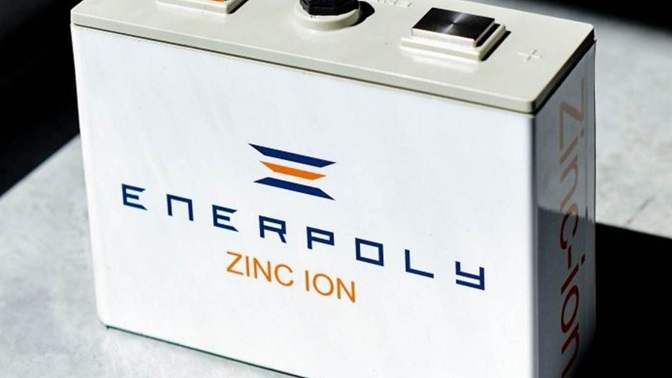A revolutionary technology for renewable energy that will facilitate the generalization of the electric car
Samer Nameer, Chief Strategy Officer and co-founder of Enerpoly explores how zinc-ion batteries are revolutionizing energy storage in safety, sustainability, and efficiency.

In the quest for cleaner energy, zinc-ion batteries have emerged as a promising technology that could transform the energy that is stored and used. In an interview with Battery Technology, Samer Nameer, Strategy Director and co-founder of Enerpoly, explains how this innovative technology is ready to reshape the energy landscape. Their safety compared to zinc batteries, recyclability, and affordable price represent a change towards a more ecological and sustainable future in energy storage.
Nameer reveals the secrets that make the technological characteristics of ion batteries ideal, especially for large-scale stationary applications compared to other battery technologies. He also explains how to behave in the area of reducing electronic waste through recycling and reuse, which contributes to the greater sustainability of this industry. Some characteristics in the medium term will be the lever that electric mobility needs for its generalization.
The safest batteries
Enerpoly’s patented technology represents an affordable and safe solution for stationary energy storage. It is based on the chemistry of zinc dioxide and manganese, two of the materials that have formed the backbone of the primary (non-rechargeable) battery industry for more than half a century. What makes these batteries unique is the ability to take advantage of the fundamental advantages of this chemistry, including simplicity, reliability, and economic efficiency, making them a cutting-edge solution.
Zinc batteries effectively address issues related to safety, sustainability, and availability. Due to their ease of ignition, lithium batteries raise significant safety concerns. In addition, they are not easily recyclable, and their manufacturing depends, to a large extent, on lithium reserves concentrated in a few countries, which entails risks in the supply chain and price fluctuations.
Regarding those with zinc ions “thanks to their aqueous components, they are inherently safe, non-flammable, non-toxic and non-explosive.” Therefore, they become a suitable choice for environments where safety is a priority, such as densely populated urban areas or applications in maritime environments. They require fewer safety precautions in their manufacturing by using materials, and energy consumption has been significantly reduced in the production process, resulting in a notable decrease in the carbon footprint, reducing it by 80% compared to conventional batteries.

Recyclable
The design is focused on recyclability at the end of its useful life, further minimizing that carbon footprint. With the abundance of the materials that make them up, their availability, and their capacity for reuse throughout their life cycle, the cost reduction is 35% compared to typical energy storage solutions.
Enerpoly batteries excel in large-scale storage applications in electrical grids with discharges ranging from 2 to 10 hours. That makes them versatile and capable of meeting various stationary energy storage needs, including grid backup, backup power provision, and commercial applications.
Performance and real tests
Enerpoly’s technology has proven capable of reaching up to 2,000 charge and discharge cycles in the most rigorous tests, which represents a significant advance compared to conventional zinc-ion batteries, which typically manage around 50 cycles under conditions.
According to the co-founder, they currently work closely with battery integration companies, such as Polarium and EET, to develop products based on their technology. The first, Polarium, specializes in backup batteries for telecommunications applications, while EET focuses on energy storage systems used in residential environments. These partnerships allow Enerpoly to adapt and customize its solutions to meet the specific needs of each application.
The future of zinc batteries: electric mobility
The next decade will be a period for innovation in sustainable battery technologies, marking a fundamental transformation in the global energy landscape towards 100% clean energy sources. Technologies such as zinc-ion batteries will play a critical role in offering more affordable, scalable, and geopolitically stable energy storage solutions. Therefore, multiple companies are committed to investing considerable resources in various battery technologies to achieve this goal.
One of the key aspects of their viability will be improved cycle life and energy density, allowing these batteries to store more energy for long periods, which is essential to support the transition to 100% renewable energy sources. At the same time, longer life will reduce the need to replace batteries frequently, contributing to greater sustainability and waste reduction.
These technological advances will open new opportunities for zinc-ion batteries beyond storage in power grids and backup power systems. They could play a significant role in electric mobility as backup batteries for charging electric vehicles, accelerating their adoption and the decarbonization of transportation.
Related Post
